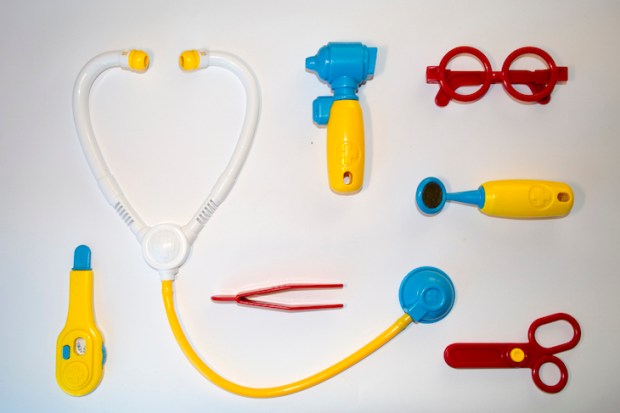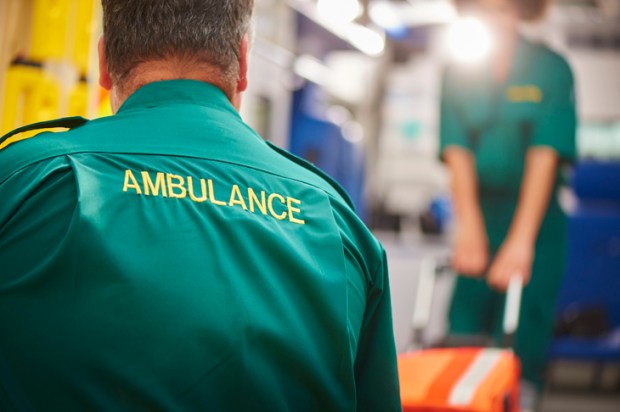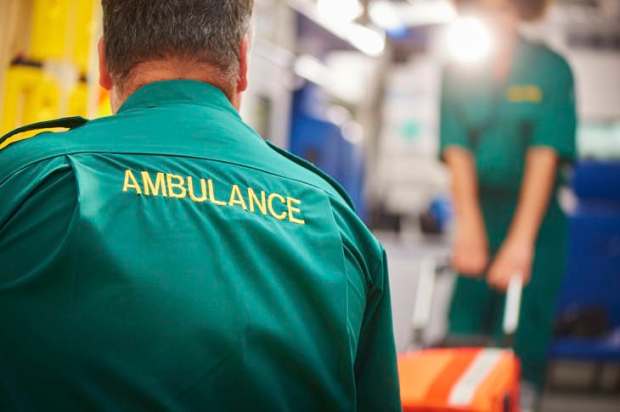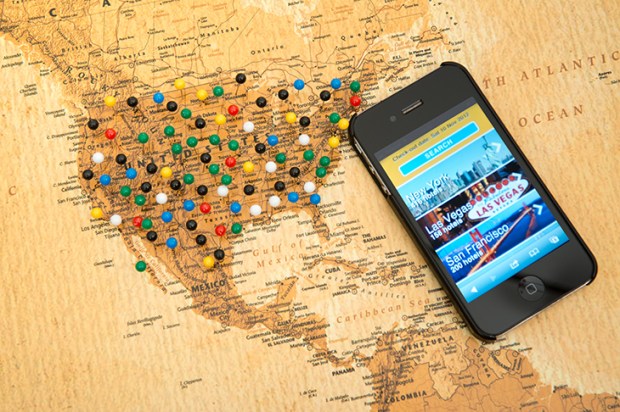My baby and I excel at blood tests. He (tiny, jaundiced) stretches out naked under the hospital’s hot cot-lamps like a Saint-Tropez lothario. The nurse rubs his foot to bring blood to his veins, and I lean over the cot to feed the greedy midget, who squawks just once as he’s stabbed.
I watch the drops bulge and drip and I puzzle over the NHS and its mysteries. Why do nurses collect baby blood in glass straws with an opening no wider than a pin? It’s like an impossible task set by a whimsical tyrant.
Even more surreal is the way the NHS handles patient records. Because the midget and I have visited so many parts of the NHS — maternity wards, A&E, GP surgeries, neonatal units — we’ve become a crack two-man investigative team. Did you know that every hospital keeps separate records for the same patient, and that they don’t, often can’t, share them, even in an emergency? I had no idea.
My boy was born in a different hospital from this one, on the other side of town. He has already had various tests but my local hospital has no access to the results. To find out his blood type, for instance, they simply test again. More heel-warming, more squawks. Hospitals are meant to communicate with a patient’s GP, but it’s been a month since the baby’s first jaundice test (we were admitted via A&E) and his registered doctor is yet to be told he’s being treated. Hospital records have to be handwritten by doctors, explains the GP when I ask, then posted or faxed over. They’ll get round to it eventually.
Why handwritten? Why faxed? No patient under 20 would even recognise the word. Our everyday data is now updated and uploaded whether we like it or not. Work meetings appear by dismal magic on my internet calendar; unwanted photos upload endlessly to clouds. So why doesn’t every patient have an NHS iCloud into which every treatment by every doctor is instantly uploaded?
This has been Jeremy Hunt’s big crusade — a digital, paper-free NHS with integrated electronic patient records. It was also, under Labour, the aim of the world’s biggest government IT failure, which has cost us more than £10 billion so far. But that was ‘one size fits all’, said Hunt. His approach, he says, is decentralised — and initially I was all for it.
But as we’ve hung around in waiting rooms, the midget and I, talking to nurses and GPs, to my surprise I’ve found my mind quite changed. Far from being straightforward and sensible, project ‘paper-free’ — however decentralised — is deeply unpopular and largely unworkable. It has all the hallmarks of another billion-pound digital turkey.
One of Jeremy Hunt’s great bugbears has been the lack of data available to frontline medics. ‘It’s crazy that paramedics cannot access a full medical history of someone they are picking up in an emergency,’ he’s said. The only time I’ve met Mr Hunt, in his vast, sunlit corner office, he repeated this refrain: ‘We need an iPad for every paramedic.’
I asked several paramedics what they thought, and back came a general sigh of despair: ‘Oh God. Not this again.’ Hunt’s iPads, they say, would endanger lives. It’s a critical, lethal waste of time to have to access a patient’s medical records in an emergency. It’s a waste of time to input data electronically, too. Until the technology radically improves, it takes longer than handwriting.
Back in 2011, the brilliant Dr Max Pemberton wrote a piece for the Telegraph about the dangers of swapping notepads for screens. Max had been doing the rounds in a ward when he noticed that the place was chock-a bloc with chunky-looking touchscreen tablets, turned off and unused. They were meant for recording patients’ data, explained a nurse, but no one bothered with them. If dropped, they broke, game over; the software didn’t sync properly with the central database; and anyway the Wi-Fi was often down. It took twice as long as handwriting, the nurse said.
Dr Max put me on to an excellent piece in the British Medical Journal this month by a GP called Margaret McCartney, which makes a chilling point about Hunt’s digital drive. Perhaps because they seem so sensible to any layman with an iPhone, there’s been no testing of the measures in this great electronic leap forward. None of these innovations have been subject to the usual scrutiny, she says. Anything new introduced to the NHS should, as a matter of course, have been rigorously tested, but this is not evidence-based.
The plan is to spend £30 million on ‘releasing time to care’ and ‘acceleration towards a paper-free environment’. But: ‘Where’s the evidence on time-saving?’ asks Dr McCartney. ‘I used to spend four to five minutes completing death certificates in my neatest writing. Now it takes me much longer. My secretary used to type referrals; now I have to do them electronically, eating into time needed for direct patient care.’ As I look back over the past month of sunbeds and scans, baroque as the system seems, I can’t imagine how electronic note-taking and storing would have worked. When the midget and I next visit A&E for a break or bump, what use will endless screens of his bilirubin levels be? What I failed to think about when I cheered for project ‘paper-free’ is that to be useful, data needs curating, sorting and tailoring. And who in the NHS has the time for that?
The first ‘progress report’ into project ‘paper-free’ was, as it happens, released just a few weeks ago, with an introduction by a Mr Paul Rice, ‘head of technical strategy’, and the upshot of the report is that there’s been, no surprise, almost no progress. Paul begins with a joke about an Irishman, then ends with a little burst of desperate lyricism. ‘I grew up in a landscape of rolling drumlins, vertiginous cliff edges and apparently endless sandy strands,’ he writes. ‘For local communities, the route to paper-free may well share these characteristics: a reasonable map. Sturdy boots. Companions. A sense of purpose. Best foot forward.’ What Paul means, I think, is that though billions have been pledged and millions spent, his boots have already sunk into a sandy strand, the map is drenched and unreadable, and his companions, quite sensibly, have fled.
Got something to add? Join the discussion and comment below.
Get 10 issues for just $10
Subscribe to The Spectator Australia today for the next 10 magazine issues, plus full online access, for just $10.
You might disagree with half of it, but you’ll enjoy reading all of it. Try your first month for free, then just $2 a week for the remainder of your first year.















Comments
Don't miss out
Join the conversation with other Spectator Australia readers. Subscribe to leave a comment.
SUBSCRIBEAlready a subscriber? Log in